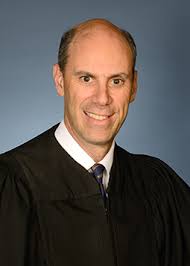
INDIANA – The Healthy Indiana Plan (HIP), which provides hundreds of thousands of Hoosiers with health insurance, could be in jeopardy after a Washington, D.C. judge vacated its federal approval on Thursday.

Chief Judge James E. Boasberg of the U.S. District Court for the District of Columbia found fault with the U.S. Department of Health and Human Services (HHS) 2020 approval of various aspects of HIP 2.0 — including POWER Accounts and the lack of retroactive coverage.

The full extent of the ruling was unclear Thursday night, but a spokesperson with the Family and Social Services Administration (FSSA) said the agency was reviewing it.
POWER Accounts, a premium for Medicaid enrollees above a certain income threshold, have been paused since the COVID-19 pandemic started in 2020 but were set to restart for HIP’s 762,276 beneficiaries on July 1.
Earlier this month, Family Services reported state law requires the agency to charge for a POWER Account contribution, a claim it repeated in the legal battle.
Officials argued striking the POWER Accounts could unravel the HIP program.
Judge Boasberg disagreed.
“Because Plaintiffs — like all members of the expansion population — derive their eligibility for Medicaid through Indiana’s state plan … they would remain Medicaid eligible even if the Secretary’s 2020 approval is vacated, unless and until the State takes additional action to terminate their coverage,” he wrote.

HIP offers a two-tiered plan to all non-disabled adults in Indiana with incomes at or below 138% of the federal poverty level (FPL). However, it restricts coverage in several ways, including charging monthly income-based premiums and offering no retroactive coverage.
The judge pointed to data showing that premiums have “threatened” coverage for thousands of Hoosiers.
For example, between February 2015 and November 2016, almost 10,000 individuals with incomes above 100% of the FPL were disenrolled from HIP Plus for nonpayment of their premiums, and another nearly 4,000 were disenrolled from HIP Basic for the same reason, according to data from various evaluations of HIP 2.0 cited by Judge Boasberg.
During that same period, Boasberg said an additional nearly 48,000 Hoosiers were found eligible for HIP 2.0 but never enrolled because they did not make their first premium payment.
“In other words, nearly 60,000 Hoosiers — a whopping 29% of all Hoosiers subject to premiums — were disenrolled from or never enrolled in HIP 2.0 because of non-payment,” Judge Boasberg wrote. “And over half of all beneficiaries, or 324,840 Indiana residents, who were required to pay premiums missed at least one payment in 2015–16.”
According to Judge Boasberg, coverage loss continued between 2017 and 2018, when 26,037 HIP Plus enrollees were disenrolled for failure to pay.
He suggests Indiana could continue the HIP program but without charging premiums.
“It is far from clear why retaining the status quo — (namely) declining to charge beneficiaries premiums and impose associated penalties — would ‘result in beneficiaries being inadvertently disenrolled.’”



